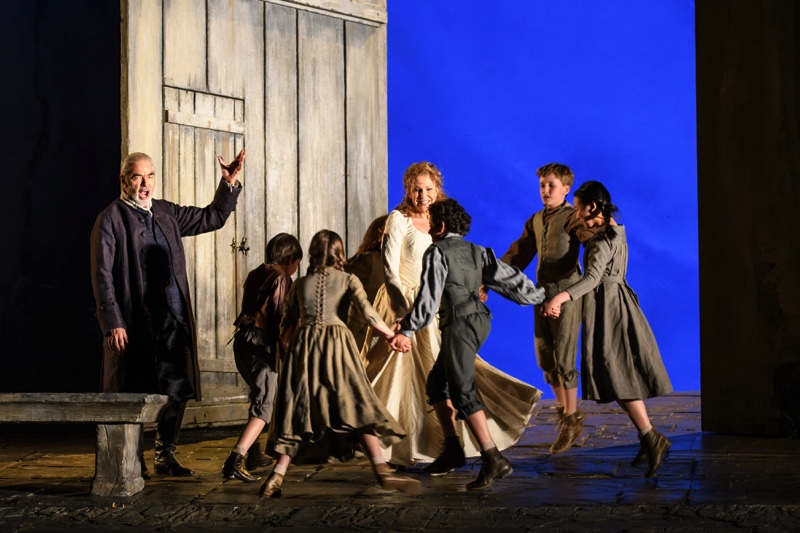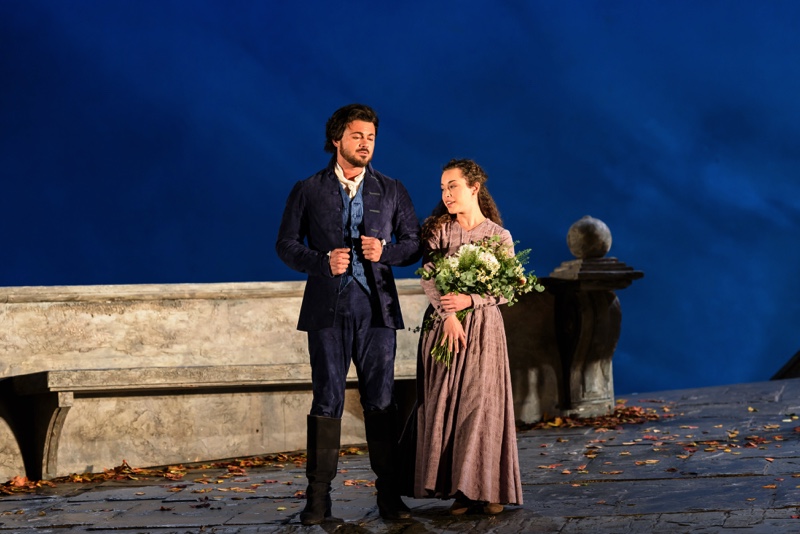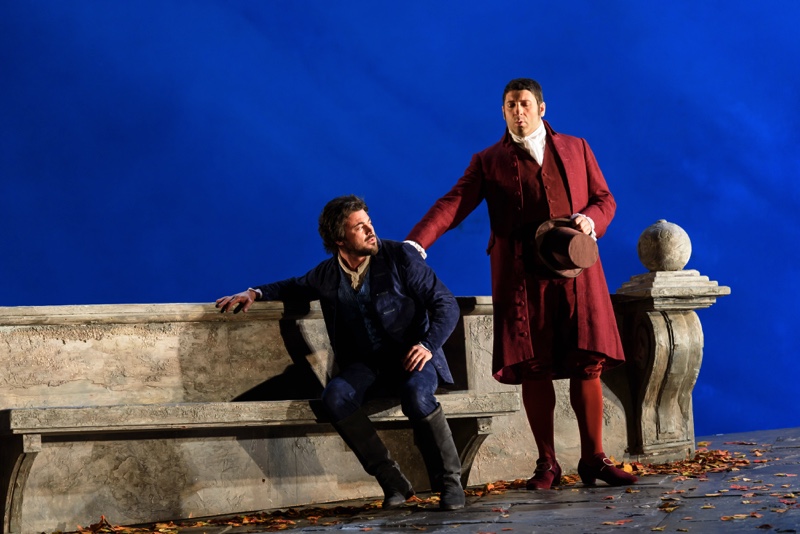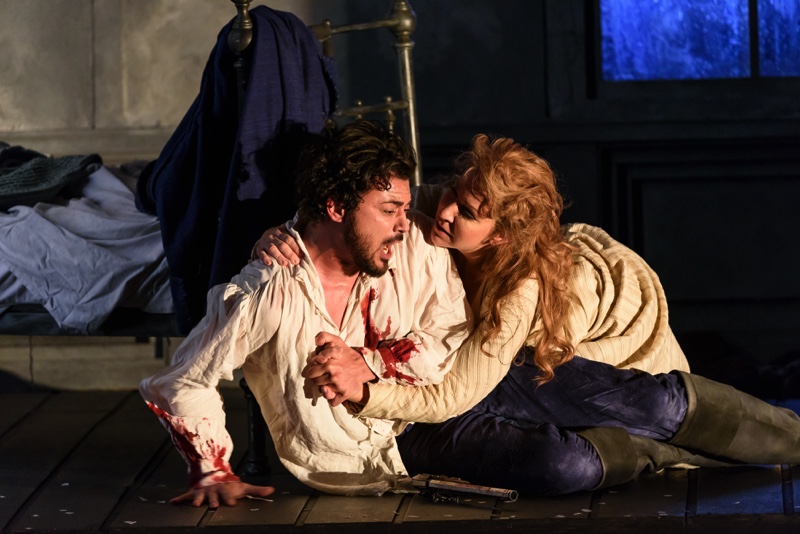Werther, Royal Opera, ROH, Covent Garden, June 2016
Posted on 19 June 2016After recently witnessing a famous opera contaminated by a director desperate to make his mark, it was a pleasure to relax into the comforting common sense of a production that serves both story and music.

Bailli, children and Charlotte, all images ROH/ Bill Cooper
This fine revival of Benoît Jacquot’s very successful 2011 production by Andrew Sinclair sees a few changes. The persistently intrusive noise of running water for a water trough in Act I has happily been abandoned, and Charlotte’s red shawl, matching the colour of Werther’s blood has been changed to black. So much the better, and with Joyce DiDonato and Vittorio Grigolo, both making their stage debuts in the main roles, this was as good as it gets.

Werther and Sophie
Massenet’s opera is based on Sorrows of the Young Werther, written by Goethe when he was a mere 24 years old, a novel that had a huge effect on forlorn young lovers, leading even to copycat suicides. In the opera the title character can be interpreted as lacking red-blooded passion, but no such problem here with Grigolo. He sang with huge passion, at first narcissistic but slowly developing the character’s sympathies for Charlotte’s predicament, and DiDonato’s singing reached a magnificent emotional tension that already began to emerge in the tranquil music of their Act I duet. The roars of the audience for both of them at the end were eloquent testimony to what may go down as one of the great performances in recent years, and Grigolo even bowed his head and knelt to touch the stage in a gesture of appreciation to Covent Garden.

Werther and Albert
A wonderful performance too by Heather Engebretson showing lyrically youthful enthusiasm in her debut as Charlotte’s younger sister Sophie, and as Charlotte’s fiancé, later husband, Albert, Serbian baritone David Bizic, who has sung the same role at the Met, turned the Act I elegant lyricism of this virtuous man into steely resolve in Act III. Among supporting roles I particularly liked François Piolino as Schmidt, a friend of the Bailli (Jonathan Summers), whose children were sung and portrayed with simple ingenuousness.

Final moments
Although the story of Werther appealed to nineteenth century Romantic sensitivities in a way that may no longer move us, this opera is served by a fine libretto and its rich melodic invention was beautifully expressed through Antonio Pappano’s conducting. He enabled singers and orchestra to fully bring out the passion inherent to Massenet’s music, making a memorable performance.
Performances continue on various dates until July 14, with a live cinema relay on June 27, and BBC Radio 3 broadcast on October 15 at 18:30 — for details click here.

